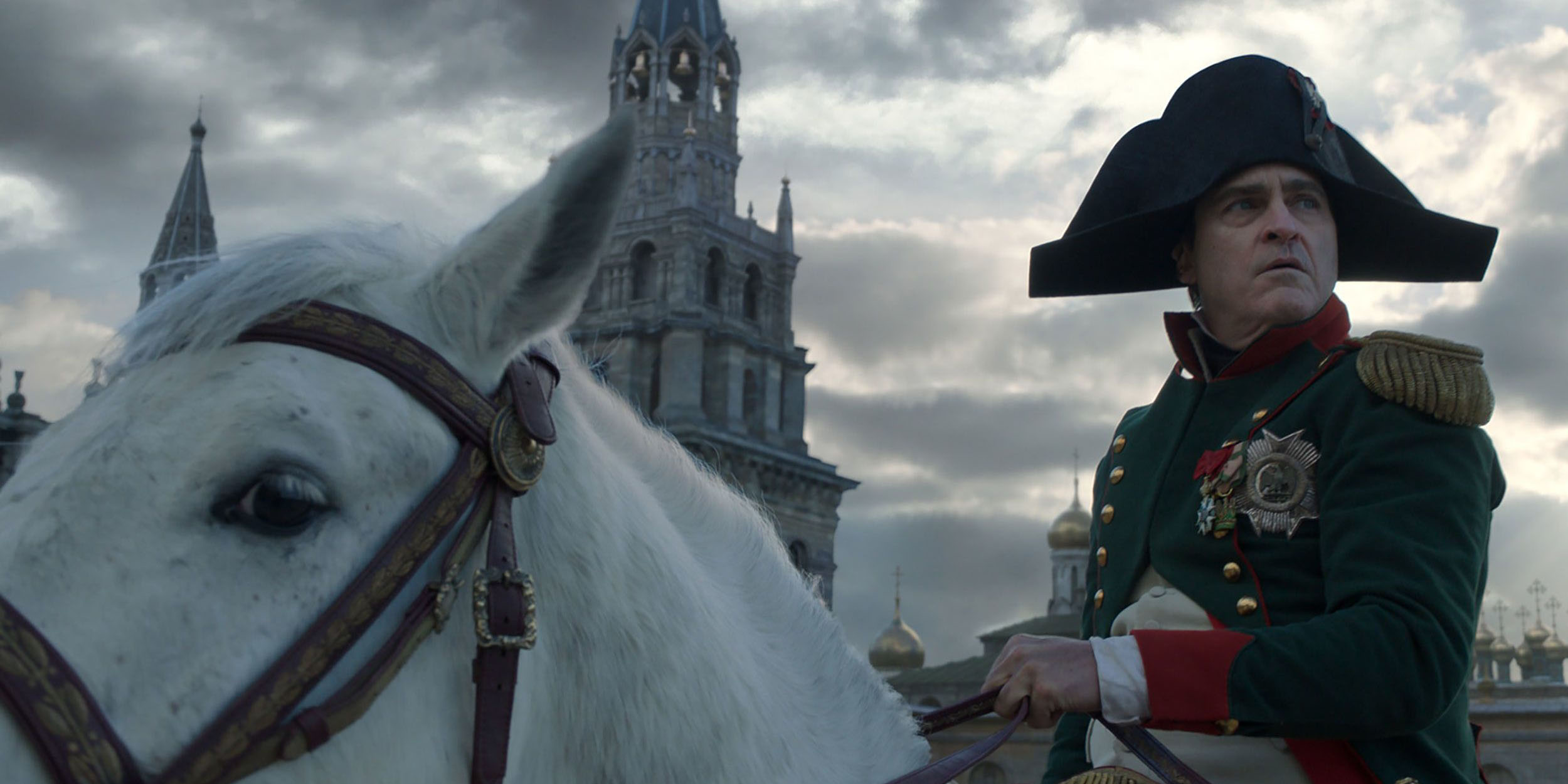
Josh Reviews Napoleon
Joaquin Phoenix stars as the titular Corsican in Ridley Scott’s film Napoleon, which chronicles the controversial figure’s rise from young officer during the turmoil of the French Revolution to his becoming Emperor of the French… and, of course, his eventual downfall.
I’m always excited for a new film by director Ridley Scott! Mr. Scott has directed some of my all-time favorite films (Alien, Blade Runner, Gladiator, Kingdom of Heaven, The Martian), and though he’s in his eighties I think he’s continuing to produce incredible films. (He released two films in 2021, and they’re both worth your time: House of Gucci and the terrific and under-seen The Last Duel.)
Napoleon is… well, it’s a lot to digest. The film is epic in scale, scope, and length (clocking in at about two hours and forty minutes). There were sequences in this film that I loved, and sequences I found confounding. I don’t think the film entirely works, but there’s a lot of interest here and a lot to unpack.
Mr. Scott is an incredible visualist and there are battle sequences in this film that are astonishing visually, stand-outs even among the many battles on film we’ve seen before. The battles are visceral and horrifying. Mr. Scott puts us right in the middle of the carnage, and the film doesn’t look away. (There’s a crazy moment early on in the film in which we see a horse absolutely demolished by a cannon fired into its neck; it’s an image I won’t soon forget.) The film’s ending text piece, giving us the astounding casualty figures for Napoleon’s major battles, makes explicit something the film had been making clear all the way through: that the astounding waste of human life in his military campaigns was appalling.
As is unsurprising based on the title, the film rests squarely on the shoulders of Joaquin Phoenix’s performance in the title role. Mr. Phoenix has played awful, selfish, powerful men before — most notably as Commodus in Ridley Scott’s Gladiator two decades ago. He amps up the horror here as Napoleon, who he plays as a spoiled, brattish terror. It’s unquestionably a magnetic performance — Mr. Phoenix commands the screen with a powerful energy. On the one hand, I applaud Mr. Phoenix and Mr. Scott’s fearlessness in making their main character be so horrible and unlikable. On the other hand, there were several times during this long movie that I questioned just why I was watching this story. Weirdly, Napoleon doesn’t have much of a character arc in the film. He’s just as awful at the start of the film as he is at the end.
Vanessa Kirby (so terrific in the last two Mission: Impossible films) plays Joséphine, the woman widowed during the French Revolution who Napoleon marries. Joséphine eventually becomes Empress, until Napoleon annuls their marriage when she’s unable to bear him an heir. Ms. Kirby is terrific; she’s a great match for Mr. Phoenix, and it’s a pleasure watching these two go toe-to-toe. I wish the film allowed us to get deeper into the character of Joséphine. I was surprised that I felt like I never understood what Joséphine thought of Napoleon. Did she love him at any point? Did she allow him to woo her because she liked something in him, or simply because she was a widow with an uncertain future and limited options? Was she sad that she couldn’t bear him a child or was she happy not to continue the bloodline of this petty, cruel man? I wish, after watching this long movie, that I understood her better. I think it’s the film’s biggest flaw.
It’s second biggest flaw, in my mind, is that I had a hard time following the narrative. This film spans a lot of time, and features many different characters and locations. I applaud the film’s ambition but, I wish the storytelling was clearer. There are many different men who float in and out of Napoleon’s life and I had a hard time tracking who was who (between Lucien, Paul Barras, Caulaincourt, and many more…). I wish I was better able to follow what happened to certain characters as the story continued. For example: what happened to Napoleon’s brother Lucien who seemed to be a staunch ally of Napoleon at the start of the film? What happened to Joséphine’s two children, who we meet when Napoleon first encounters her? Many of Mr. Scott’s films were improved when the longer director’s cut came to light — Kingdom of Heaven being the prime example — and so I wonder if some of the connecting tissue of this story got left on the cutting room floor? (If this two hour and forty minute film is the edited down version, I can’t imagine how longer this imagined longer version might have been!)
The end result is that, despite the epic spectacle on display, this film felt rather flat for me. I didn’t care much about any of the characters and I had a hard time following large swaths of the story. I’m glad to have seen this — it was enjoyable on the big screen — but I doubt this is a film I’ll be in any rush to revisit.
Please support my website by clicking through one of our Amazon links the next time you need to shop! As an Amazon Associate, I earn from qualifying purchases. That means I’ll receive a small percentage from any product you purchase from Amazon within 24 hours after clicking through. Thank you!
